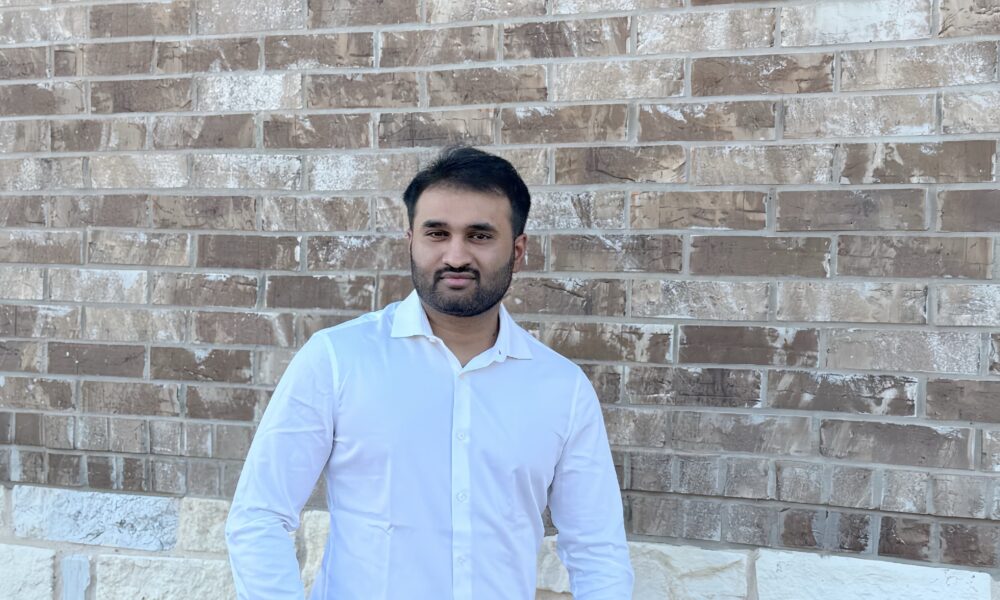The Blueprint of Innovation: A Deep Dive into Mr. Kolluri Venkateswaranaidu's Trailblazing Research Journey as a Data Scientist Leveraging Artificial Intelligence and Machine Learning

© Venkateswaranaidu Kolluri
With excellence in the tech world and today’s fast-paced data-driven world, the significance and roles of data scientists and software system architects have increased substantially. An important role of data scientists is to interpret and analyze complex datasets to derive actionable insights and build predictive models based on machine learning, a subset of artificial intelligence (AI). In machine learning, algorithms enable systems to learn and improve based on data without explicit programming.
Why are data scientists, system architects, artificial intelligence, and machine learning considered vital in today’s competitive modern technological era?
To gain deeper insights into these questions, we spoke with a renowned senior data scientist, Mr. Kolluri Venkateswaranaidu, the man behind the cutting-edge system.
Mr. Kolluri Venkateswaranaidu has gained notoriety in the tech sector for his dedication to working in the healthcare sector as a software architect and data scientist. His deep understanding of machine learning principles has also allowed him to create innovative facial recognition technology for all the sectors specially for healthcare departments. Having comprehensive experience in information and technology and AI, Mr. Kolluri is known for unlocking the value hidden within massive datasets.
Can you walk us through the research work you did while working in the tech field and the impact it had on your professional growth?
Mr. Kolluri Venkateswaranaidu: First and foremost, I would like to express my gratitude for allowing me to discuss the insights of data science, software architecture, machine learning and artificial intelligence enabling me to share my professional experiences. It is no less than a privilege to delve into the details and challenges of my field that have helped me shape my career.
I was born and raised in Andhra Pradesh, India. I got a master’s degree from the University of Mary Hardin Baylor in the US with a focus on Information Systems and Technology. With an extensive experience of 10 years in the field, my working life began with App Solutions Inc. as a Systems Analyst, enabling me to achieve sky-rocketing performance in my profession.
My career path led me to discover that AI models and algorithms can be misused by unauthorized users, which can result in larger issues. As part of this detailed research analysis, I combined the findings from academic research, industry reports, and case studies from real life to make the public aware of the magnitude of the problem and the need to protect these vulnerabilities.
Can you shed light on how your journey began, what inspired you to enter the vast world of research, and how it ultimately led to the invention of a device needed to shape the healthcare system?
Mr. Kolluri Venkateswaranaidu: My journey started with a strong desire to make a real difference and a deep curiosity about how to solve problems. After extensively working and gaining experience, I became aware of how these fields could be used to address real-world problems, especially in the healthcare industry, which sparked my interest in research because it allowed me to delve deeper into creative solutions. Over time, my knowledge of machine learning and data-driven insights allowed me to identify important gaps in healthcare systems. This knowledge motivated me to design and develop a device that uses AI to improve accuracy, efficiency, and accessibility in healthcare.
What inspired and motivated you to pursue a career in this field?
Mr. Kolluri Venkateswaranaidu: Growing up in a fast-paced digital world has always been a source of motivation and in no time, I found myself being extremely fascinated by the power of technology to solve real-world problems. The introduction of AI into the tech industry, in my opinion, was revolutionary and it sparked my interest. I wanted to be a part of this adventure, and the thought of machine learning and developing to make better decisions felt like a step into the future.
What challenges have you faced in managing research and scientific work?
Mr. Kolluri Venkateswaranaidu: During my 10 years of extensive experience in this field, I have encountered several challenges, including data quality and availability, scalability, data privacy and security, model interpretability, rapidly evolving technology, etc. Particularly in data science, there is a high chance of models becoming intricate which can disrupt the alignment for real-time deployment in software systems. As for software architects, it can be quite challenging to ensure that each model integrates seamlessly without compromising on the quality of performance.
We have come across several articles about your publications in major journals, your memberships, and your groundbreaking innovation in facial recognition technology, which is poised to revolutionize healthcare. Can you tell us more about this achievement and its potential impact on the future of healthcare?
Mr. Kolluri Venkateswaranaidu: As I discussed earlier, exploring the risks within AI systems is crucial because it carries inherent risks that need to be carefully navigated. Addressing these vulnerabilities in articles and publications, I aim to shed light on these risks and encourage practices that ensure AI develops in a way that’s safe, ethical, and transparent for everyone.
Moreover, in my role as the inventor of facial recognition technology tailored for the healthcare industry but not limited to just healthcare, I have seen firsthand how this technology can enhance patient care and security. Furthermore, this technology provides a level of security that is vital for protecting sensitive data and controlling access to restricted areas which will transform the healthcare industry in future, making it safer and more efficient.
What precautions and measures do you take to safeguard sensitive data and information in your work, and how does your groundbreaking device help enhance data security?
Mr. Kolluri Venkateswaranaidu: Since my early years of work, data security and privacy have been my top priority. As a data scientist and software architect, I strictly adhere to following an established data protection framework by conducting regular tests to identify any uncertain vulnerabilities. To reduce the chance of any risk, I make sure to incorporate data minimization in my work wherever possible to protect individual identities.
As part of the development of the facial recognition device for the healthcare industry, the security of sensitive data was a top priority, especially in light of cybersecurity concerns. The facial data collected is anonymized and stored in compliance with healthcare regulations, ensuring no personally identifiable information is exposed or misused. These security measures make the device not only an efficient tool for patient identification but also protect it from evolving cyber risks.
Lastly, since you are working in the healthcare industry, what are your future plans with AI and ML and how do you intend to further develop your groundbreaking facial recognition device?
Mr. Kolluri Venkateswaranaidu: In terms of the future, I hope to be able to build more advanced systems with AI and machine learning to make stronger, more precise systems to provide early clinical diagnosis, more personalized treatment plans, and facilitated/optimized patient healthcare journeys.
Also, I want to broaden its scope beyond identifying patients to monitoring mental health or preventing fraud and increasing operational efficiency in hospitals. The amalgamation of AI and facial recognition will catalyze to usher healthcare into a system that is more secure, seamless, and centered around the patient.





